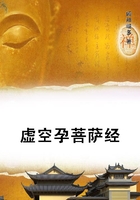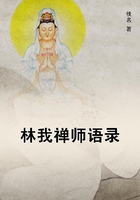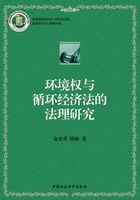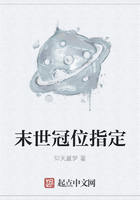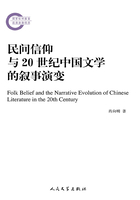Through this feminine La Bruyere, as Sainte-Beuve has styled her, we are introduced to the life at Sceaux. It was the habit of the guests to assemble at eight, listen to music or plays, improvise verses for popular airs, relate racy anecdotes, or amuse themselves with proverbs. "Write verses for me," said the insatiable duchess when ill; "I feel that verses only can give me relief." The quality does not seem to have been essential, provided they were sufficiently flattering. Sainte-Aulaire wrote madrigals for her. Malezieu, the learned and versatile preceptor of the Duc du Maine, read Sophocles and Euripides. Mme. du Maine herself acted the roles of Athalie and Iphigenie with the famous Baron. They played at science, contemplated the heavens through a telescope and the earth through a microscope. In their eager search for novelty they improvised fetes that rivaled in magnificence the Arabian Nights; they posed as gods and goddesses, or, affecting simplicity, assumed rustic and pastoral characters, even to their small economies and romantic platitudes. Mythology, the chivalry of the Middle Ages, costumes, illuminations, scenic effects, the triumphs of the artists, the wit of the bel esprit--all that ingenuity could devise or money could buy was brought into service. It was the life that Watteau painted, with its quaint and grotesque fancies, its sylvan divinities, and its sighing lovers wandering in endless masquerade, or whispering tender nothings on banks of soft verdure, amid the rustle of leaves, the sparkle of fountains, the glitter of lights, and the perfume of innumerable flowers. It was a perpetual carnival, inspired by imagination, animated by genius, and combining everything that could charm the taste, distract the mind, and intoxicate the senses. The presiding genius of this fairy scene was the irrepressible duchess, who reigned as a goddess and demanded the homage due to one. Well might the weary courtiers cry out against les galeres du bel esprit.
But this fantastic princess who carried on a sentimental correspondence with the blind La Motte, and posed as the tender shepherdess of the adoring but octogenarian Sainte-Aulaire, had no really democratic notions. There was no question in her mind of the divine right of kings or of princesses. She welcomed Voltaire because he flattered her vanity and amused her guests, but she was far enough from the theories which were slowly fanning the sparks of the Revolution. Her rather imperious patronage of literary and scientific men set a fashion which all her world tried to follow. It added doubtless to the prestige of those who were insidiously preparing the destruction of the very foundations on which this luxurious and pleasure-loving society rested. But, after all, the bond between this restless, frivolous, heartless coterie and the genuine men of letters was very slight. There was no seriousness, no earnestness, no sincerity, no solid foundation.
The literary men, however, who figured most conspicuously in the intimate circle of the Duchesse du Maine were not of the first order. Malezieu was learned, a member of two Academies, faintly eulogized by Fontenelle, warmly so by Voltaire, and not at all by Mlle. de Launay; but twenty-five years devoted to humoring the caprices and flattering the tastes of a vain and exacting patroness were not likely to develop his highest possibilities.
There is a point where the stimulating atmosphere of the salon begins to enervate. His clever assistant, the Abbe Genest, poet and Academician, was a sort of Voiture, witty, versatile, and available. He tried to put Descartes into verse, which suggests the quality of his poetry. Sainte-Aulaire, who, like his friend Fontenelle, lived a century, frequented this society more or less for forty years, but his poems are sufficiently light, if one may judge from a few samples, and his genius doubtless caught more reflections in the salon than in a larger world. He owed his admission to the Academy partly to a tender quatrain which he improvised in praise of his lively patroness. It is true we have occasional glimpses of Voltaire. Once he sought an asylum here for two months, after one of his numerous indiscretions, writing tales during the day, which he read to the duchess at night.
Again he came with his "divine Emilie," the learned Marquise du Chatelet, who upset the household with her eccentric ways. "Our ghosts do not show themselves by day," writes Mlle. de Launay;
"they appeared yesterday at ten o'clock in the evening. I do not think we shall see them earlier today; one is writing high facts, the other, comments upon Newton. They wish neither to play nor to promenade; they are very useless in a society where their learned writings are of no account." But Voltaire was a courtier, and, in spite of his frequent revolts against patronage, was not at all averse to the incense of the salons and the favors of the great. It was another round in the ladder that led him towards glory.
The cleverest women in France were found at Sceaux, but the dominant spirit was the princess herself. It was amusement she wanted, and even men of talent were valued far less for what they were intrinsically than for what they could contribute to her vanity or to her diversion. "She is a predestined soul," wrote Voltaire. "She will love comedy to the last moment, and when she is ill I counsel you to administer some beautiful poem in the place of extreme unction. One dies as one has lived."
Mme. du Maine represented the conservative side of French society in spite of the fact that her abounding mental vitality often broke through the stiff boundaries of old traditions. It was not because she did not still respect them, but she had the defiant attitude of a princess whose will is an unwritten law superior to all traditions. The tone of her salon was in the main dilettante, as is apt to be the case with any circle that plumes itself most upon something quite apart from intellectual distinction. It reflected the spirit of an old aristocracy, with its pride, its exclusiveness, its worship of forms, but faintly tinged with the new thought that was rapidly but unconsciously encroaching upon time-honored institutions. Beyond the clever pastimes of a brilliant coterie, it had no marked literary influence. This ferment of intellectual life was one of the signs of the times, but it led to no more definite and tangible results than the turning of a madrigal or the sparkle of an epigram.




